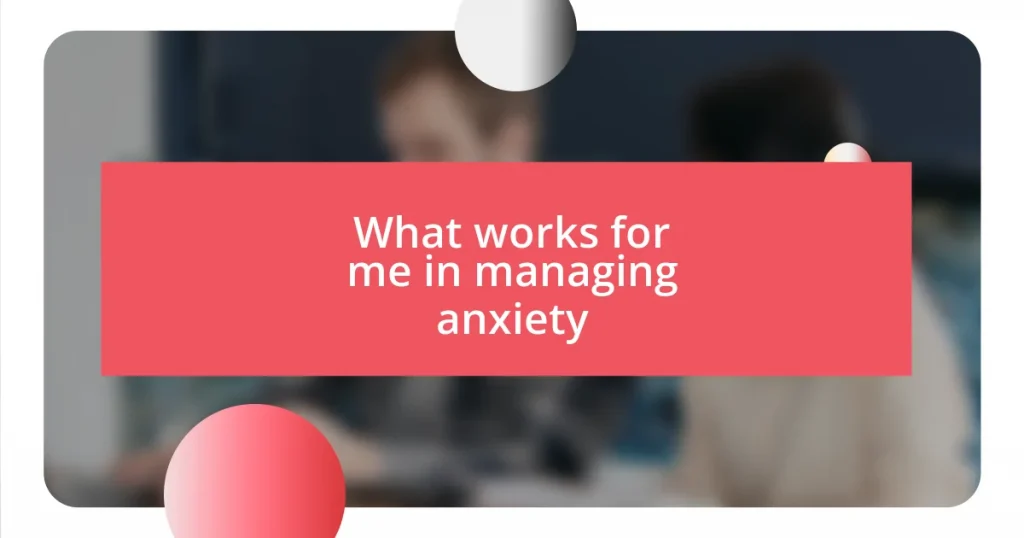Key takeaways:
- Anxiety affects mental and physical health, often turning simple tasks into challenges; journaling can help process these emotions.
- Identifying personal triggers through reflection, journaling, and observation is essential for managing anxiety and regaining control.
- Implementing effective coping strategies, such as mindfulness meditation and physical activity, and tracking progress allows for flexibility and personal adaptation in anxiety management.
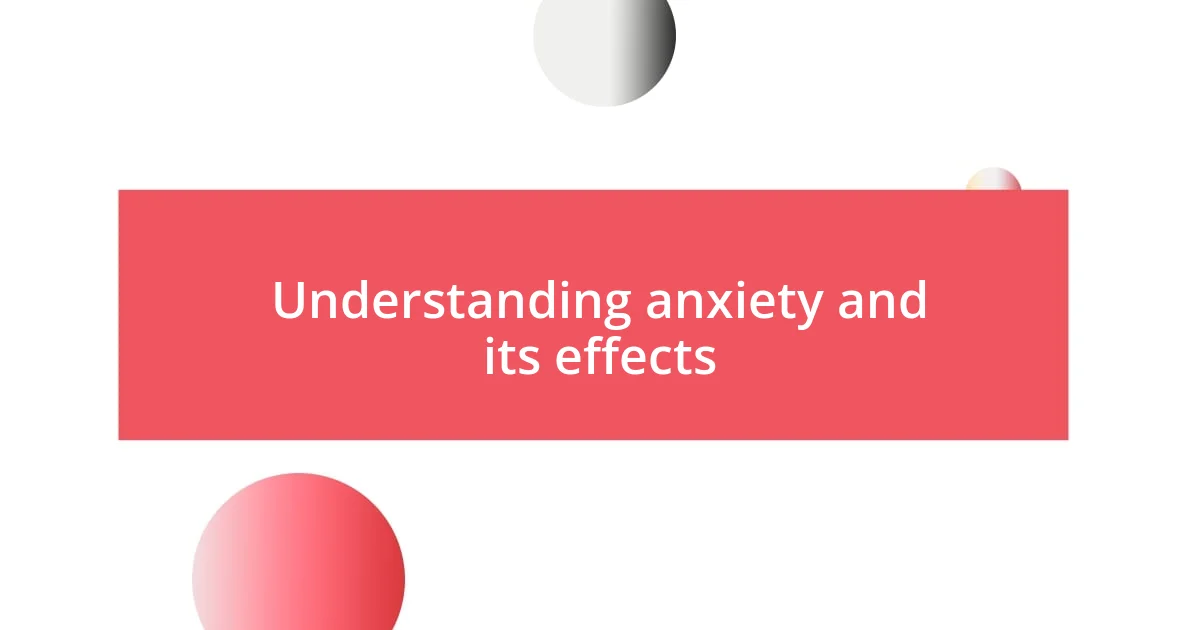
Understanding anxiety and its effects
Anxiety is a complex emotion that can manifest in various ways, often turning everyday situations into challenges. I remember a time when just walking into a crowded room felt like standing on the edge of a cliff, my heart racing and my mind swirling with worries. Doesn’t it feel overwhelming when anxiety transforms simple tasks into hefty burdens?
The effects of anxiety can ripple through every aspect of life, affecting not only mental health but also physical wellbeing. I’ve experienced how chronic anxiety can lead to sleepless nights and persistent fatigue, leaving me feeling drained and incapable of handling even mundane duties. Have you ever noticed how anxiety has the power to cloud your judgment, making it hard to think clearly when you need it most?
Understanding anxiety is not just about recognizing symptoms; it’s about exploring its roots and personal impact. Recently, I started journaling my feelings, and it amazed me how simply putting pen to paper could unravel the tangled thoughts in my head. How do you navigate through your own feelings when anxiety strikes? It’s crucial to find your own methods of understanding and coping, as they can significantly change your relationship with anxiety.
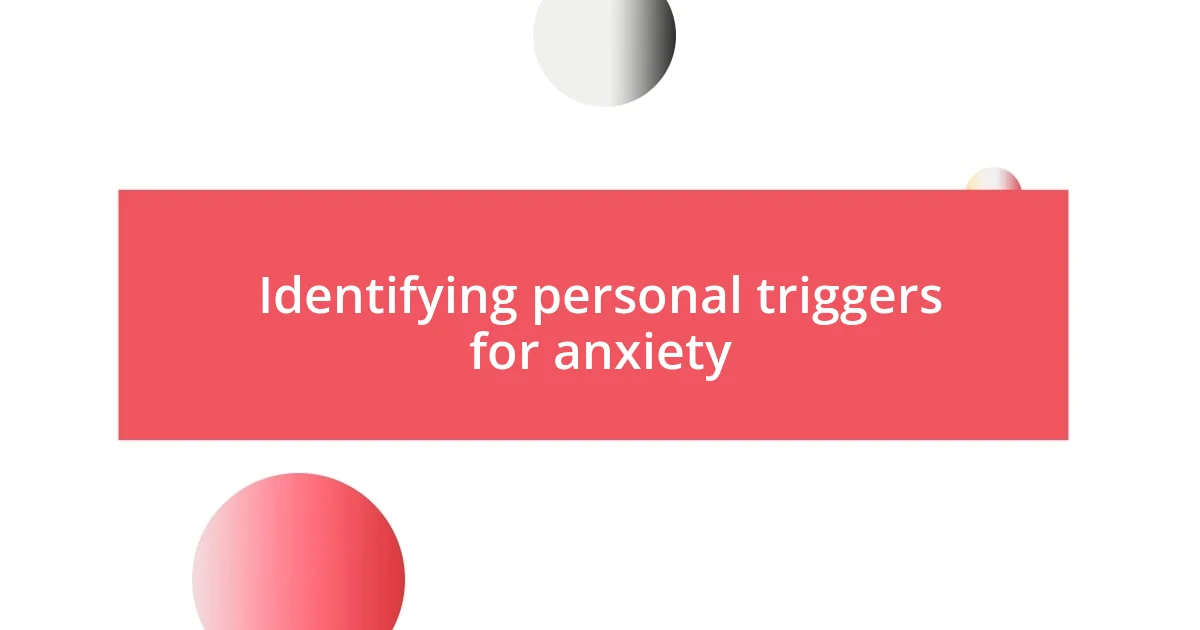
Identifying personal triggers for anxiety
Identifying triggers is a key part of managing anxiety. I remember when I started paying attention to what made me anxious—certain social situations, deadlines, or even certain news stories could send my stress levels skyrocketing. It became clear to me that awareness was the first step; once I recognized my triggers, I could better prepare for them.
To help pinpoint your own triggers, consider these strategies:
- Reflect on past experiences: What situations have caused anxiety in the past?
- Keep a journal: Record your feelings and note the circumstances around them.
- Check in with your body: Pay attention to physical symptoms that accompany your anxiety.
- Talk to someone: Discuss your feelings with a trusted friend or therapist to gain perspective.
- Notice patterns: Do certain people or places consistently heighten your anxiety levels?
Focusing on the triggers opens up a pathway to understanding, and I found it empowering to decode these signals. When I understood what set off my anxiety, I started to regain a sense of control. How liberating is it to turn the unknown into something manageable?
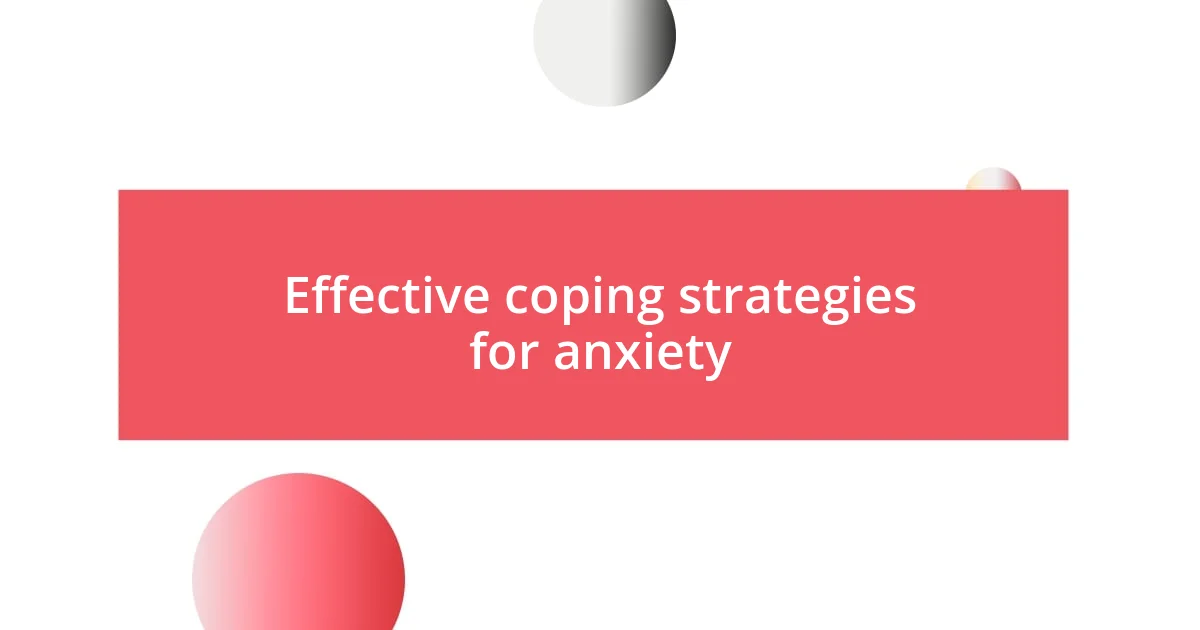
Effective coping strategies for anxiety
Finding effective coping strategies is an essential part of my anxiety management toolkit. One method I’ve found incredibly beneficial is mindfulness meditation. Initially, I was skeptical about sitting quietly with my thoughts, but I discovered that focusing on my breath truly helps me reclaim moments of peace, especially during stressful days. Have you ever noticed how just five minutes of deep breathing can drastically shift your mood?
Another strategy that has made a significant difference for me is physical activity. I always felt a rush of relief after a brisk walk or a dance in my living room. It’s amazing how moving my body helps dispel anxious energy and boosts my mood. I often find myself wondering, what fun activity can you try to shake off those anxious feelings?
| Strategy | Benefits |
|---|---|
| Mindfulness Meditation | Promotes relaxation and reduces stress through focused breathing. |
| Physical Activity | Helps release endorphins, improving mood and reducing anxiety levels. |
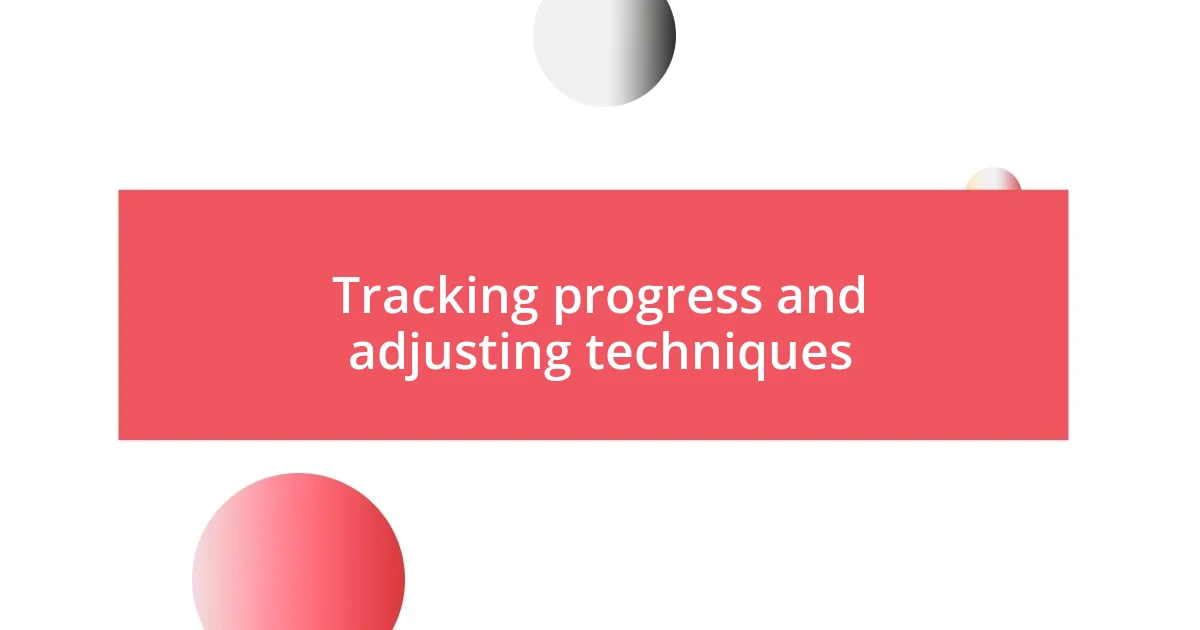
Tracking progress and adjusting techniques
Tracking your progress is a crucial part of managing anxiety effectively. I remember when I first started implementing new strategies—I marked each win, no matter how small. Whether it was a day I managed to navigate a particularly anxious situation or simply felt calmer than usual, each entry in my journal served as a building block. Reflecting on these victories reminds me that progress is often gradual, and it truly adds a sense of accountability to my journey.
As I tracked my progress, I also learned the importance of being flexible with my techniques. Sometimes, what worked in the past simply wasn’t effective in the present. For instance, I once relied heavily on nighttime journaling to calm my racing thoughts. But then, as life got busier, I found it hard to maintain that routine. So, I adapted… swapping it for morning meditation instead. This shift not only fit my schedule better but also equipped me with a fresh mindset to tackle the day ahead. Have you ever had to reassess what works for you?
Listening to my body and mind has been invaluable in this process. I would take note of the fluctuations in my anxiety levels and reflect on which techniques had the most positive impact during tough times. For instance, after an intense week filled with deadlines, I recognized that a simple walk in nature provided more relief than a quick meditation session. This prompted me to incorporate nature walks into my regular routine, allowing me to adjust my approach based on what I intuitively felt was beneficial. It’s all about finding that personal rhythm—what techniques can you effectively integrate into your life to create a sense of calm?










